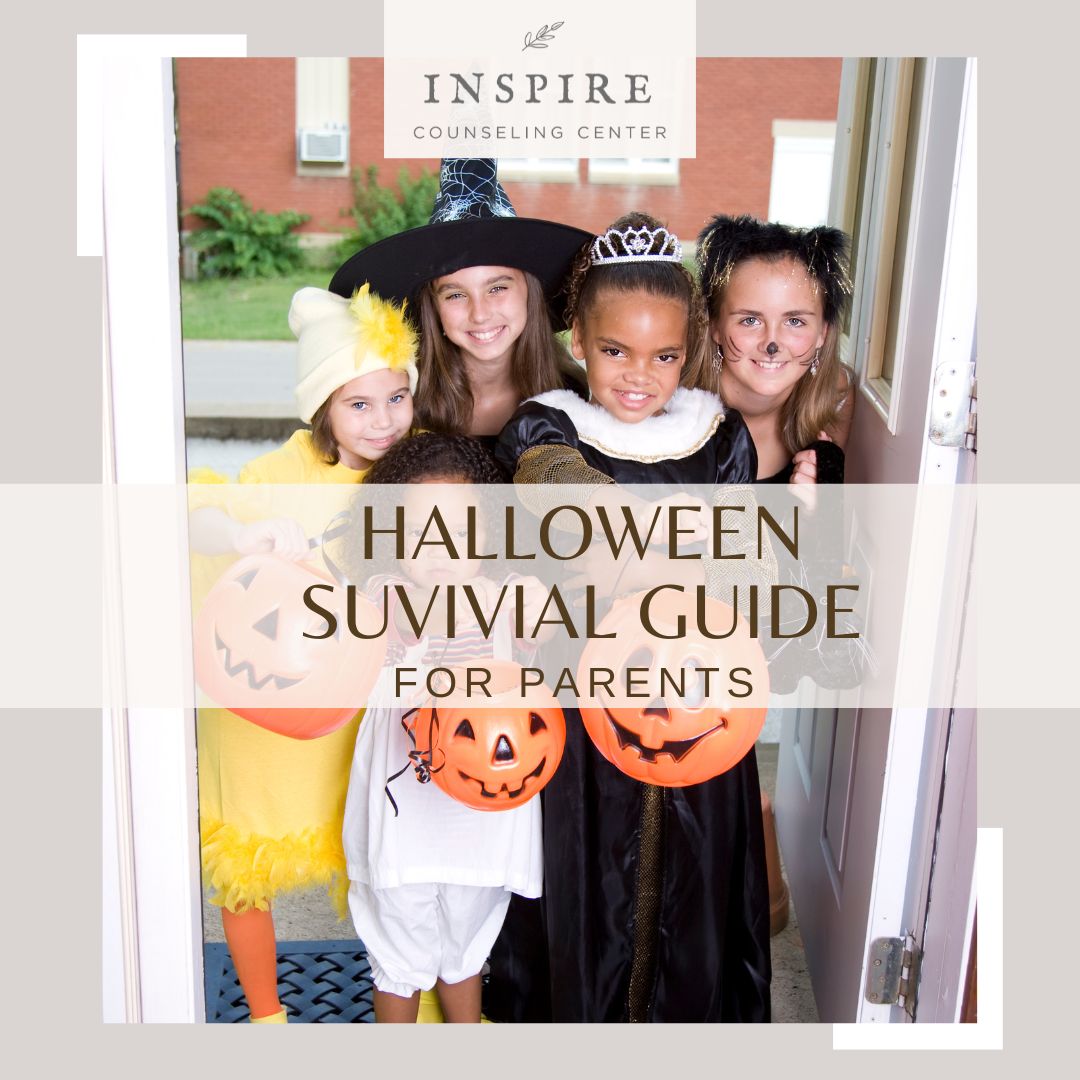
While Halloween seems like an innocent and fun holiday, we know (all too well!) it can bring up social anxiety, hurt feelings from being left out and panic as kids choose their costumes, trick-o-treating groups and plans.
Every Halloween our phones ring with upset and concerned parents. But, it’s something that is not talked about enough. We are here to help support you and our therapists came up with some free tips you can use if this Halloween is more tricky than treat this year.
Why does Halloween bring up so much turmoil?
Halloween can shine a pretty bright light on social groups. Choosing groups to trick-o-treat with and picking matching costumes can be a lot of fun–but can also be painful if your child is left out. One of the trickiest parts of Halloween is the fact that you can go trick-o-treating by yourself, with one friend, 20 friends or more. There is no minimum, no limit, no tickets, no assigned seating, no teachers or helpers–it’s mostly a kid run event. If you’re left out, there is no real logistical reason. Which is why it’s so painful and can cause a lot of social anxiety if you’re not sure of the plan.
Watching your child struggle is so hard – at any age! If you’re in this boat, or think you could be some day, we have a few tips from the professionals to help you navigate the “hurt halloween feelings.”
If you think your child might be getting left out:
- Check in with yourself. Ask yourself how are YOU feeling? Watching your kid struggle is one of the hardest things. Knowing your own feelings helps regulate your brain to think more clearly.
- Take a couple of deep breaths. When you get oxygen to your brain, you can think clearly and get some new creative ideas.
- Don’t confuse your feelings with your kids feelings. Sometimes these situations bother us parents more than our kids–especially if you have friendships with your kid’s friend’s parents. It is important to remember your feelings are not the same as your child’s feelings. Check it out with them to see if they’re upset. If they’re not, let them navigate the world as they like. If you’re hurt or upset with your friend, then you can address it directly on an adult level. It is really emotionally healthy if you allow people in your home (and life) to have different emotions at the same time.
If your child is, in fact, feeling sad, scared or left out, you can:
- Listen and validate their feelings. Naming feelings is a great way to calm down the brain and make those feelings less intense.
- Share a memory of a time that you felt similarly. This not only normalizes things, but creates connection–which is the most important thing kids need in these situations. Everyone feels better when they realize they’re not alone or the only one experiencing what they are feeling.
- Resist solving their problems. Ask your kid, “What do you think we should do?” Give them time to think and brainstorm with you, but don’t solve it for them. Kids are more creative ideas than most adults realize. While it’s tempting to text another parent, or make a plan to get your kid involved, it’s much more empowering for your child to see their power in their life and circumstances. If they see you fix the problem, that actually keeps them stuck in a feeling of helplessness, relying on you to navigate challenges for them.
If you’d like more support for your child, or yourself — we are here to help customize a strategy and plan to help you and your family thrive. We are here and will do all we can to make you feel comfortable, loved, appreciated and inspired to live your best life.
Life is simply too precious and too short to suffer. You and your family deserve to be happy, confident and free to live a great life!
Support is just a call, text or email away.
Call or text (847) 919-9096 or email hello@inspirecounselingcenter.com




